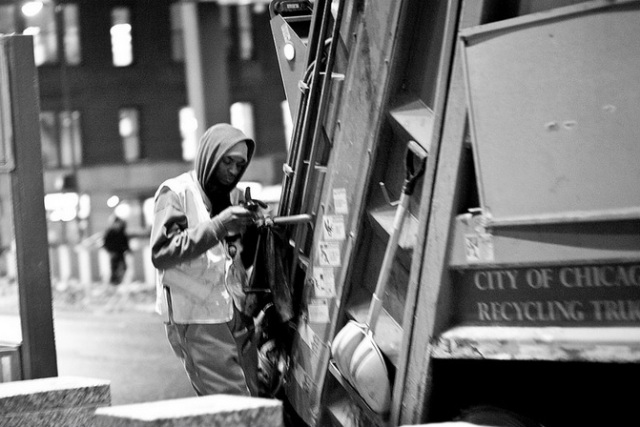OIG Report: Streets And San Wasting Money With Free Garbage Collection For Multi-Unit Buildings, Nonprofits
By Chuck Sudo in News on Jun 24, 2014 9:00PM
Chicago Inspector General Joseph Ferguson’s office has found another municipal service that could save the city money with diligence and vigilance. A recent IG’s office audit of the Department of Streets and Sanitation found the city is wasting money providing free garbage collection for large multi-unit residential homes and nonprofit organizations.
The reason for this is a “grandfather” clause written into Section 7-28-040 of the Chicago Municipal Code in 2000 where multi-unit residential buildings containing five or more residences would receive free garbage collection until those buildings were sold. Complicating matters with this is the discovery Streets and San’s “grandfather list” hasn’t been updated since 2007, when it contained 2,402 properties.
Streets and San is also providing free garbage collection to 1,393 nonprofits. Streets and San’s estimated cost to taxpayers for this free trash collection is $3,275,207 for the multi-unit buildings and $3,316,274 for nonprofits.
The OIG says in their report:
Based upon the results of our audit, we concluded that DSS’s present enforcement of MCC § 7-28-240 is neither effective nor efficient. OIG found that DSS’s ordinance enforcement mechanism, the grandfather list, has been seriously inaccurate.
Streets and San conducted an audit of their grandfather list and found 794 buildings may no longer be eligible for free garbage pickup and, in a classic case of CYA, said it will begin procedures to determine which buildings need to be removed from the grandfather list and terminate service where needed.
Ferguson’s office says if nonprofits wish to continue receiving garbage pickup from Streets and San, the Municipal Code needs to be amended “for the collection of garbage from not-for-profit organizations, and that in doing so, it consider the recent legislation respecting the provision of free water to certain non-profits as an instructive guide.”
We see a bright future in Chicago’s private waste management industry.
